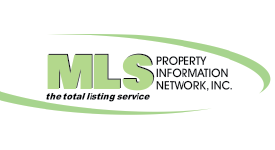
Some leaks are obvious -- coming home to a soggy rug or soaked floor is a pretty good indicator that you have some plumbing trouble -- but others are more discreet and can lead to a costly water bill and home damage if you don't catch them. Mold and mildew can develop in days, so a slow or hidden leak can also lead to a health hazard. Use these tips to track down those less than obvious leaks and prevent damage to your home:
- Listen: If your toilets are constantly running, then you are using up water you are not getting any benefit from. Turn off all electronics and bathroom fan and listen -- you should not hear any running water. If you do, you should investigate further and repair the problem. Use the same technique to catch drips and leaks in other areas -- if you can see or hear a drip, it is wasting water and costing you money.
- Look at your bill: While your water bill likely varies every month, a sudden spike of 10% or more should be investigated, particularly if you know you haven't done anything different. If you repeatedly filled a kiddie pool or know you forgot and left the sprinklers on, then the higher than normal bill has a reasonable explanation, but if you didn't do anything out of the ordinary, you have a leak somewhere that needs to be tracked down.
- Take a walk: Walk around the yard around your sprinkler system -- if the ground is soggy and it has not rained (and you haven't been excessively watering) then you could have a bad sprinkler head. You should also check outside faucets and hoses for leaks for the same reason.
- Investigate odors: If your home suddenly smells moist and mildewy, you may have a leak somewhere. Check in all cabinets that house sinks and pipes, behind and around toilets and fixtures and around your washing machine and hot water heater. There should be no visible water, no mold and no moisture. If you spot any of these, you need to take further action.
- Head to the attic or basement: Both of these areas could house pipes or equipment you never see or think about, until they cause a problem. Make it a point to visually inspect these areas as part of a home maintenance routine. Ideally, schedule this when you test your fire alarms and swap out HVAC filters -- checking these areas takes just a minute, but can save you thousands in repair work if you spot a problem early.
Make a quick visual inspection of your water heater, sprinkler system and under sink areas a part of your seasonal maintenance routines and you'll catch any moisture before it has a chance to permanently damage your home.
About the Author

Cheryl Pendenza - Realtor®/Broker Associate
Bringing more than 30 years of experience to the table, Cheryl has a paralegal degree, banking background, and is a member of many professional, civic, and community organizations.
Qualified • Experienced • Skilled
"As a full-time Real Estate Broker, I am dedicated to providing my clients with a high level of service by building relationships, marketing, and negotiating on their behalf. As a homeowner, I realize how important homeownership is.
Cheryl brings warmth and compassion to her client relationships and referrals have become the backbone of her business. "I’m grateful for every referral and welcome the opportunity to help clients achieve their real estate goals.”
Cheryl Pendenza, Broker Associate affiliated with RE/MAX Andrew Realty Services since 1999 is a local businesswoman and formidable negotiator who can help you achieve your real estate goals. Supporting family, community and local business is important to Cheryl and she can often be found at one of the local restaurants, shops, or galleries.
